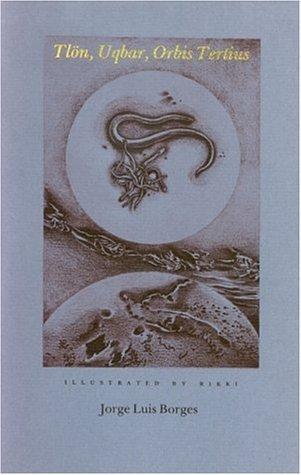Idioma English
Publicado el 16 de diciembre de 1983

Idioma English
Publicado el 16 de diciembre de 1983
"Tlön, Uqbar, Orbis Tertius" is a short story by the 20th-century Argentinian writer Jorge Luis Borges. The story was first published in the Argentinian journal Sur, May 1940. The "postscript" dated 1947 is intended to be anachronistic, set seven years in the future. The first English-language translation of the story was published in 1961. Told in a first-person narrative, the story focuses on the author's discovery of the mysterious and possibly fictional country of Uqbar and its legend of Tlön, a mythical world whose inhabitants believe a form of subjective idealism, denying the reality of objects and nouns, as well as Orbis Tertius, the secret organization that created both fictional locations. Relatively long for Borges (approximately 5,600 words), the story is a work of speculative fiction. The story alludes to many leading intellectual figures both in Argentina and in the world at large, and takes up a number of themes …
"Tlön, Uqbar, Orbis Tertius" is a short story by the 20th-century Argentinian writer Jorge Luis Borges. The story was first published in the Argentinian journal Sur, May 1940. The "postscript" dated 1947 is intended to be anachronistic, set seven years in the future. The first English-language translation of the story was published in 1961. Told in a first-person narrative, the story focuses on the author's discovery of the mysterious and possibly fictional country of Uqbar and its legend of Tlön, a mythical world whose inhabitants believe a form of subjective idealism, denying the reality of objects and nouns, as well as Orbis Tertius, the secret organization that created both fictional locations. Relatively long for Borges (approximately 5,600 words), the story is a work of speculative fiction. The story alludes to many leading intellectual figures both in Argentina and in the world at large, and takes up a number of themes more typical of a novel of ideas. Most of the ideas engaged are in the areas of metaphysics, language, epistemology, and literary criticism.